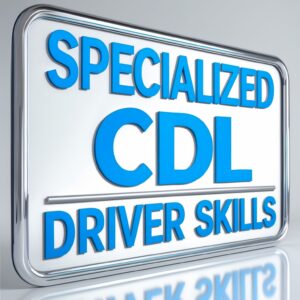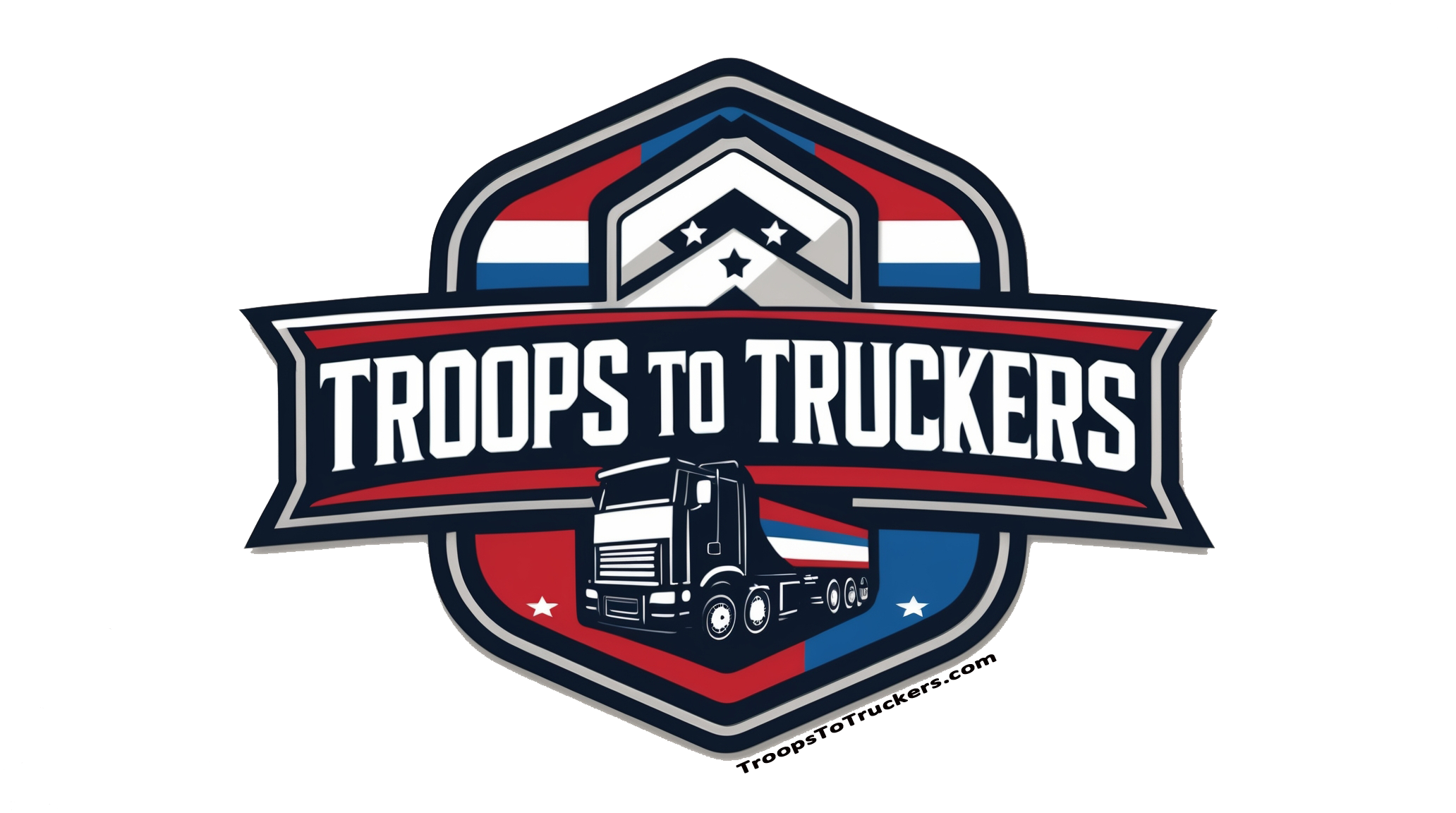 Expanding Your Career Horizons
Expanding Your Career Horizons
The trucking industry offers a broad array of opportunities beyond standard freight hauling. For drivers looking to advance their careers, earn higher wages, or simply add variety to their work, specialized driving roles present exciting options.
Specialized areas such as hazardous materials (HAZMAT) transport, flatbed trucking, tanker driving, and hauling oversized loads demand specific skills and certifications, but they also come with distinct rewards, from increased pay to heightened job security. In this chapter, we’ll explore the various types of specialized driving and explain how venturing into these fields can expand your career horizons.
Understanding Specialized Driving
Specialized driving is any trucking role that requires additional skills, training, or certifications beyond a standard commercial driver’s license (CDL). These roles often involve handling unique types of cargo, operating specialized equipment, or navigating specific types of terrain.
The primary benefit of specialized driving is that it can lead to higher-paying positions, as these jobs are generally in high demand and require a unique skill set. In addition to the financial benefits, specialization can also open doors to new career paths and provide drivers with more control over their schedules and routes.
HAZMAT Driving – Handling Hazardous Materials
Hazardous materials (HAZMAT) driving involves transporting goods that pose a risk to health, safety, or the environment. These materials can include flammable liquids, corrosive chemicals, radioactive substances, and other dangerous goods. To become a HAZMAT driver, you need a HAZMAT endorsement on your CDL, which requires passing a written test and undergoing a background check.
The stakes are high in HAZMAT driving. Drivers must adhere to strict regulations, including specific loading, unloading, and transportation protocols, to ensure the safety of themselves and the public. This attention to detail and adherence to safety standards makes HAZMAT drivers valuable, and companies are willing to pay a premium for skilled professionals.
Advantages of HAZMAT Driving:
Higher Pay: Due to the risks and responsibilities involved, HAZMAT drivers often earn significantly more than standard freight drivers.
Increased Job Security: HAZMAT-certified drivers are in high demand, as the transport of hazardous materials is a crucial aspect of many industries.
Career Flexibility: With HAZMAT certification, drivers can work in various sectors, including chemical, oil and gas, and manufacturing, providing flexibility and opportunities for advancement.
Challenges:
Increased Responsibility: The nature of the cargo requires meticulous attention to detail and strict adherence to safety protocols.
Stringent Regulations: HAZMAT drivers must stay up-to-date with federal and state regulations, which can change frequently.
Flatbed Trucking – Moving Oversized and Unusual Loads
Flatbed trucking involves transporting goods on a flat, open trailer rather than an enclosed one. This type of trucking is often used for oversized or irregularly shaped loads, such as construction equipment, building materials, or large machinery.
Flatbed trucking requires drivers to be proficient in securing loads, as there’s no enclosed trailer to keep cargo in place. Securing the load properly with chains, straps, and tarps is essential to prevent accidents and ensure the safety of everyone on the road.
Advantages of Flatbed Trucking:
Higher Earnings: Flatbed drivers typically earn more than standard freight haulers because of the additional labor and skills required.
Physical Activity: Unlike standard trucking, which can be sedentary, flatbed trucking involves more physical work, making it appealing to drivers who prefer an active job.
Variety in Cargo: Flatbed drivers often transport a wide range of goods, which keeps the job interesting and provides new challenges with each load.
Challenges:
Physical Demands: The physical aspect of securing and covering loads can be exhausting, especially in extreme weather conditions.
Additional Training: Drivers must learn how to handle a variety of oversized and irregularly shaped loads, which may require additional training and experience.
Tanker Driving – Transporting Liquids and Gases
Tanker driving involves transporting liquids, such as fuel, chemicals, milk, or gases, in specialized cylindrical trailers. Driving a tanker is challenging, as liquid cargo can shift within the trailer, affecting vehicle stability. This type of driving requires a tanker endorsement on your CDL and, in some cases, a HAZMAT endorsement if the cargo is hazardous.
Advantages of Tanker Driving:
Increased Earnings: Tanker drivers are well-compensated due to the complexity and risks involved in hauling liquids.
Specialized Skills: Tanker driving hones a driver’s skills, particularly in handling cargo that shifts during transit, which can make drivers more marketable and valuable.
High Demand in Various Industries: Industries such as fuel distribution, agriculture, and manufacturing rely heavily on tanker drivers, providing ample job opportunities.
Challenges:
Cargo Stability Issues: The movement of liquid in the tanker can make the vehicle challenging to control, especially during turns or sudden stops.
Higher Safety Risks: Tankers carrying hazardous liquids pose additional safety risks, requiring extra caution and skill.
Oversized Load Transport – Moving Extra-Large Cargo
Oversized load transport involves hauling cargo that exceeds standard legal dimensions, such as heavy machinery, industrial equipment, or even prefabricated homes. These loads require special permits and may necessitate additional equipment, such as pilot cars, to ensure safe transportation. Oversized load drivers must have in-depth knowledge of regulations, as well as skill in navigating routes that can accommodate large loads.
Advantages of Oversized Load Transport:
Lucrative Pay: Drivers hauling oversized loads often receive premium pay due to the complexity and responsibility involved.
Specialized Knowledge and Skills: Oversized load drivers gain unique skills, such as route planning and the use of specialized equipment, which can make them highly sought after in the industry.
Career Growth: Mastery in oversized load transport can lead to career growth, as it demonstrates a high level of expertise and reliability.
Challenges:
Complicated Logistics: Planning routes for oversized loads is complex, as drivers must consider road restrictions, bridge heights, and other factors.
Extended Driving Time: Oversized loads may require slower speeds and adherence to specific schedules, which can extend the time spent on the road.
Benefits of Specializing in Trucking
Specialized trucking roles not only offer the potential for higher pay but also provide drivers with a sense of accomplishment and expertise. Specialization can make drivers more competitive in the job market, as companies are often looking for individuals with specific endorsements or experience. Here are a few additional benefits to consider:
Greater Job Satisfaction: Specialization allows drivers to find a niche that they enjoy, which can lead to increased job satisfaction.
Professional Growth: Specialized driving requires ongoing learning and skill development, making it an excellent choice for those interested in growing professionally.
Higher Demand and Job Stability: Drivers with specialized skills are often in higher demand, which can lead to greater job stability and opportunities for advancement.
Getting Started in Specialized Driving
If you’re interested in pursuing specialized driving, start by researching the specific certifications and training needed. For example, HAZMAT and tanker endorsements require additional tests and, in some cases, background checks.
Many companies offer training programs or reimburse costs for certifications to encourage drivers to specialize. Additionally, consider networking with experienced specialized drivers or joining industry groups to learn more about the demands and benefits of various specialized roles.
Consider Specializing
Specialized driving offers commercial truck drivers the chance to elevate their careers and explore areas of trucking that go beyond typical freight hauling. By gaining the necessary endorsements and skills, you can position yourself as a highly skilled, versatile driver with access to lucrative and rewarding opportunities.
Whether you’re drawn to the precision of HAZMAT driving, the strength required for flatbed trucking, the finesse needed for tanker hauling, or the planning involved in oversized load transport, there’s a specialized trucking role for every driver ready to take on the challenge.
To learn more about specialized driving and how it can expand your career horizons, visit our website or reach out to experienced mentors in the industry. Embracing specialization could be the key to unlocking new levels of success and fulfillment in your trucking career.




Comments are closed